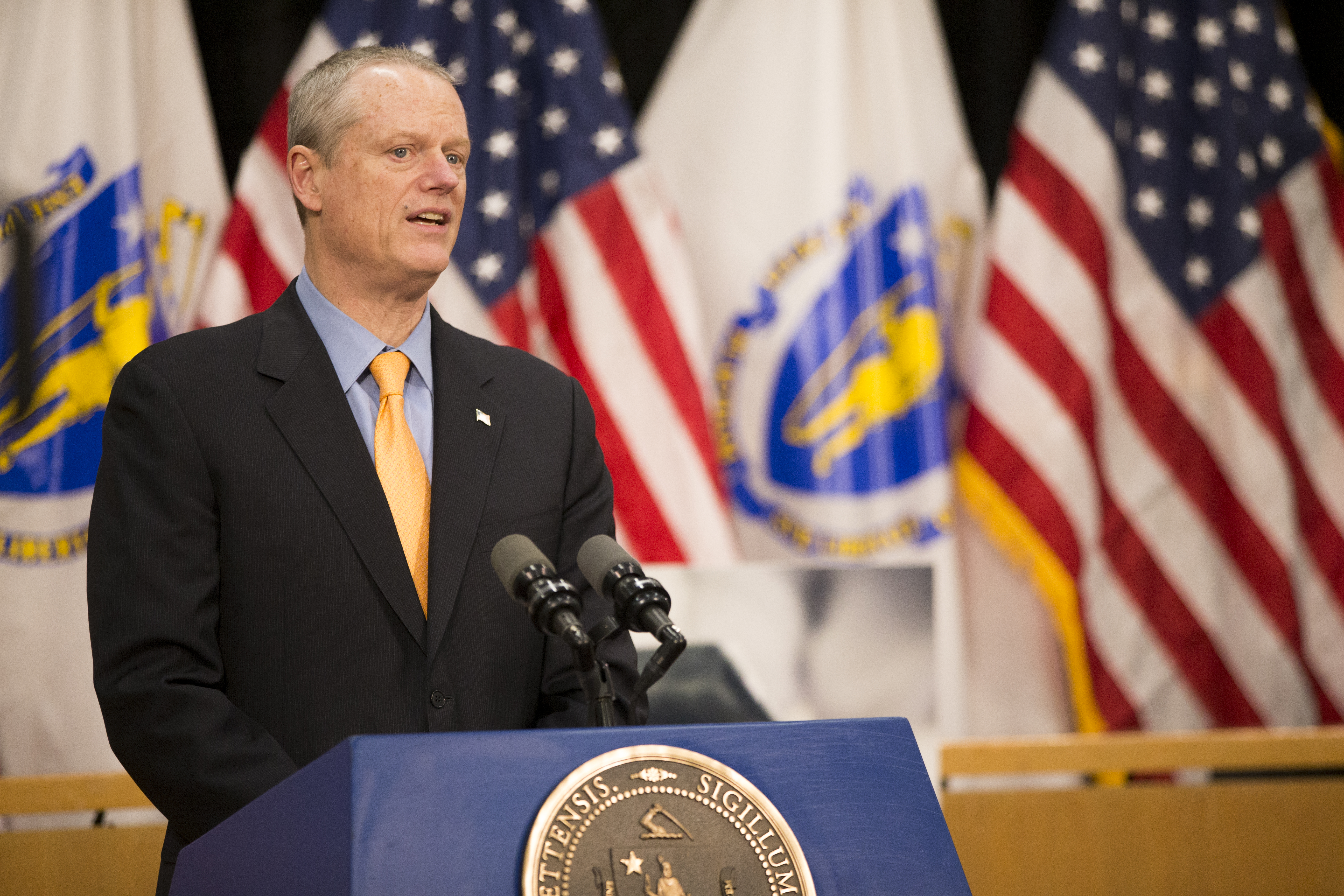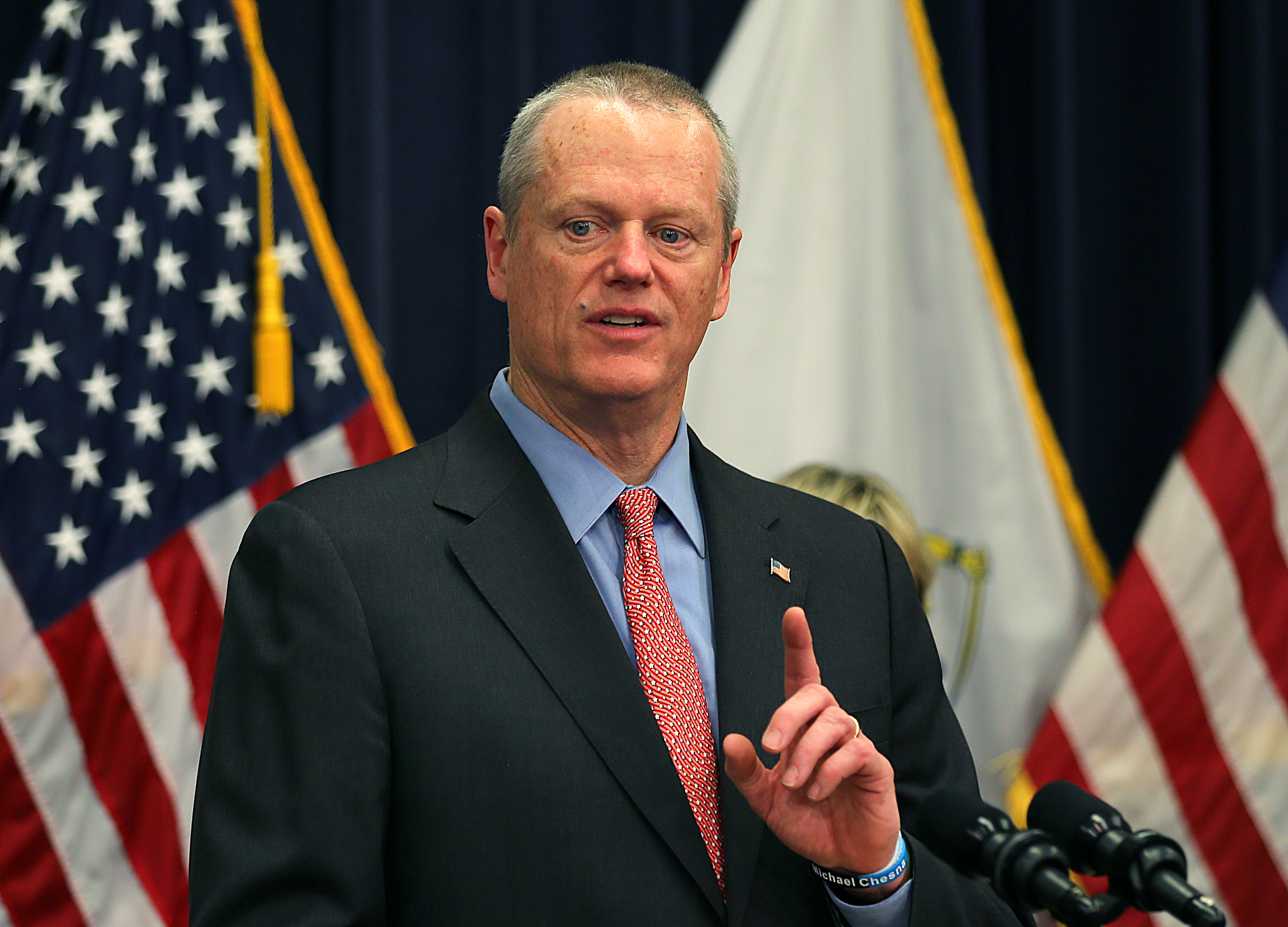What to Know
- Gov. Baker extended several coronavirus-related orders: residents being told to stay at home except to get essential items, the closure of non-essential businesses and a 10-person limit on gatherings.
- People can no longer rent hotel rooms or homes through platforms like Airbnb for vacations, while the state is opening a temporary field medical center in Worcester
- Thirteen people at Holyoke Soldiers' Home have died, Baker said, at least six with the new coronavirus, in an incident now under investigation.
Massachusetts Gov. Charlie Baker has extended the state's stay-at-home advisory and an order requiring all non-essential businesses to close through May 4.
The 10-person limit on gatherings in the state has been extended as well, Baker said at the State House, following a similar extension by the federal government. The orders had previously held through April 7, but his administration is expecting a surge in cases to peak in two weeks.
Baker also said that hotel rooms and home-sharing platforms like Airbnb can no longer be booked for people to go on vacation. Instead, only health care workers and others who were displaced from their homes amid the coronavirus pandemic can book rooms.
"These actions will improve our ability to mitigate the spread of COVID-19," he said, noting the "high cost" the measures have taken on residents and business owners.
"If we can limit face-to-face, person-to-person contact now, we can slow the spread and get back to work as soon and as safely as we possibly can," he said.
Here is a list of what Baker announced at Tuesday's news conference:
- Non-essential business closure: Extended through May 4, with some additions, like adding optometrists and some types of cleaning workers to the list of businesses considered essential. See the list of essential workers here.
- Stay-at-home order: Extended through May 4.
- No short-term rentals for vacations: Hotels, motels and homes listed for rent on places like Airbnb can only accept health care workers or people displaced from their homes.
- Government employee work-from-home: All state employees who had been working remotely are expected to continue doing so through May 4.
- Field medical stations: A 250-bed temporary medical facility will be built at the DCU Center in Worcester to treat non-critical coronavirus patients who need to be monitored.
- Nursing/rest home testing program: A pilot program will begin testing people with coronavirus symptoms on-site at the state's nursing and rest home facilities.
The dramatic measures that have been taken in Massachusetts, across the country and around the world are aimed at slowing the spread of the highly infectious coronavirus. Cases of COVID-19, the disease caused by the virus, can overwhelm hospital systems where it spreads quickly, forcing health care providers to choose who gets put on life-saving treatments, which are in short supply.
u003cemu003eu003ca href=u0022https://www.nbcboston.com/newsletters/u0022u003eGet the latest news on COVID-19 delivered to you. Click here to sign up for our coronavirus newsletter.u003c/au003eu003c/emu003e
To help mitigate the expected surge in cases in the coming weeks, Massachusetts has requested three field medical stations, temporary facilities where coronavirus patients who aren't in critical condition can be monitored, Baker said. One has been approved for the DCU Center in Worcester, with construction on the 250-bed facility beginning Wednesday.
The elderly are one of the groups most at risk of COVID-19, though it has killed people of all ages, even healthy ones, and one hot spot in the state has appeared to be Holyoke Soldiers' Home, a nursing facility that houses U.S. military veterans.
Baker spoke passionately about the facility Tuesday, calling it an "amazing place" that has seen "a gut-wrenching loss" of 13 people, at least six of them from the coronavirus. He said a review of what happened is underway.
He also talked about the personal toll that people, especially business owners, are experiencing from the social distancing measures meant to prevent hot spots from forming.
Most people are abiding by the orders, but not all, and he threatened to take action to more specifically target gatherings of people in parks or at the beach.
"The next couple of weeks are going to be critical in this battle," he said. "Everyone needs to play their part. People need to stay at home as much as possible."
Baker said Monday that the latest models show that the coronavirus surge is expected to hit Massachusetts in the next two to three weeks, sometime between April 7 and April 17.
"This isn't an exact science, but generally speaking, most of the calculations that are out there with respect to Massachusetts ... suggest that the surge here is probably going to start somewhere between the 7th and the 17th," Baker said at the time.
How Coronavirus Has Grown in Each State — in 1 Chart
New York has quickly become the epicenter of the American coronavirus outbreak. This chart shows the cumulative number of cases per state by number of days since the 10th case.
Source: The COVID Tracking Project
Credit: Amy O’Kruk/NBC
There are 6,620 coronavirus cases in Massachusetts, including 89 deaths, state health officials announced Tuesday. Nearly 43,000 residents have been tested so far, according to health officials.
Baker said Monday that the focus now is on preparing for the surge, including making sure people stay home to help "flatten the curve," securing as many needed supplies as possible and expanding the state's existing bed capacity to help ease the pressure on existing healthcare facilities.
He said the federal government has approved his request for at least 1,000 ventilators to help address the coronavirus pandemic.
The state also continues to receive more shipments of personal protective equipment like face masks. And private businesses like New Balance are also stepping up to help manufacture face masks for those battling coronavirus.
All travelers arriving in Massachusetts have been asked to self-quarantine for two weeks. Schools and non-emergency day care centers remain closed until May 4.
State House News Service contributed to this report.



